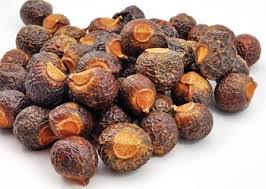The Growing Market for Herbal Products & Ayurvedic Herbs
The demand for herbal products and Ayurvedic herbs is growing rapidly worldwide, especially in India, where Ayurveda has been practiced for centuries. Consumers are becoming more aware of the health benefits of natural remedies and are actively seeking chemical-free, plant-based alternatives for healthcare, skincare, and wellness. This shift in consumer behavior has led to the expansion of the herbal product industry, creating new business opportunities and increasing investment in the Ayurvedic sector.
At Dirghaanshi, we explore the growing market for herbal products, the key factors driving this growth, and how businesses can leverage this opportunity to succeed in the Ayurvedic industry.
Long Description (With SEO Points)
1. The Rising Demand for Herbal Products
The herbal product industry is experiencing significant growth due to:
- Increased awareness of natural remedies and their benefits.
- Rising concerns about the side effects of synthetic medicines.
- Government support through Ayush initiatives and herbal product regulations.
- Growing popularity of organic and chemical-free products in healthcare and beauty.
2. Key Categories of Herbal Products in Demand
A. Ayurvedic Medicines and Herbal Supplements
- Ayurvedic formulations made from Ashwagandha, Brahmi, Shatavari, and Triphala are widely used for immunity, digestion, and stress relief.
- Herbal supplements such as Turmeric capsules, Amla powder, and Moringa extracts are gaining traction among health-conscious consumers.
B. Herbal Skincare and Beauty Products
- Natural skincare products made with Neem, Aloe Vera, and Sandalwood are replacing chemical-based beauty products.
- Ayurvedic hair care solutions like Bhringraj oil and Amla hair masks are in high demand.
C. Herbal Teas and Organic Health Drinks
- Herbal teas infused with Tulsi, Ginger, and Lemongrass are popular for their medicinal properties.
- Organic green tea and detox drinks are growing trends in the wellness industry.
D. Traditional Jadi Buti and Medicinal Plants
- Indigenous herbs like Safed Musli, Bapchi Seeds, and Mulethi are widely used in Ayurveda.
- Medicinal plants are being cultivated commercially for pharmaceutical and wellness applications.
3. Factors Driving the Growth of the Herbal Market
A. Government Initiatives and Policies
- The Indian government promotes Ayurveda through the Ministry of Ayush.
- Incentives and subsidies are available for Ayurvedic and herbal businesses.
- Export regulations for herbal medicines have been simplified to promote global trade.
B. Consumer Awareness and Lifestyle Changes
- People are moving towards natural healing due to concerns over chemical-based treatments.
- The rise of fitness and wellness trends has boosted demand for organic herbal supplements.
- Increased education about Ayurvedic herbs and their medicinal benefits is influencing purchasing decisions.
C. Digital Transformation and E-commerce Growth
- Online marketplaces like Amazon, Flipkart, and specialized herbal e-commerce platforms have made herbal products easily accessible.
- Direct-to-consumer (D2C) brands are gaining popularity, allowing businesses to sell herbal products online without intermediaries.
- Social media marketing and SEO optimization have helped herbal brands reach a wider audience.
4. Business Opportunities in the Herbal Market
A. Starting an Herbal Product Business
- Entrepreneurs can start a herbal medicine manufacturing unit, an Ayurvedic wellness brand, or a herbal cosmetics business.
- Sourcing high-quality raw herbs from organic farms ensures authenticity and effectiveness.
B. Exporting Ayurvedic Herbs Internationally
- The global demand for Ayurvedic herbs and organic health products is increasing.
- Certification such as GMP, ISO, and Ayush approval is essential for international trade.
C. Creating an Online Herbal Store
- Setting up an e-commerce website for herbal products offers a high-growth potential.
- Social media platforms, influencer marketing, and SEO-optimized content drive traffic and sales.
5. Future Trends in the Herbal Industry
- Personalized Ayurveda: AI-based solutions for customized herbal treatments.
- Sustainable Herbal Farming: Organic farming methods to meet increasing demands.
- Integration with Modern Medicine: Growing research on combining Ayurveda with allopathy.
- Expansion of Ayurvedic Wellness Centers: Increasing number of Ayurveda retreats and spas.
Conclusion
The herbal product industry is expanding due to increasing awareness, government support, and digital transformation. Businesses that focus on high-quality herbal products, effective marketing strategies, and online presence can capitalize on this booming market. As consumer preference for natural wellness solutions continues to grow, investing in herbal and Ayurvedic products presents a profitable opportunity.













